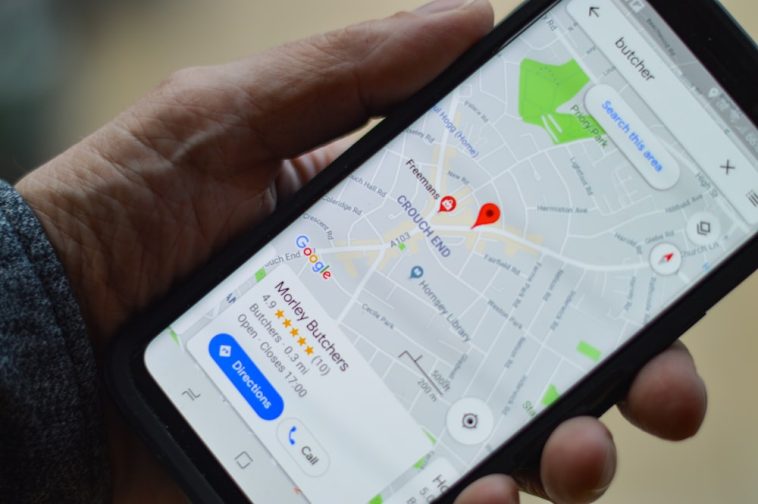Introduction.
If you’re running a small business, you probably already know how important it is to stand out in your local community.
But here’s the thing: even if your product or service is amazing, people won’t find you if you don’t make sure they can.
That’s where local SEO comes in. Local SEO is all about making sure that when someone in your area searches for what you offer, they find you, not your competitors. Sounds like something you should get on, right?
The good news is, local SEO doesn’t have to be complicated. It’s actually a really straightforward way to boost your visibility online, bring in more customers, and ultimately grow your business. The even better news? You don’t need to be a tech expert to make it happen.
This guide will walk you through everything you need to know to get started with local SEO.
From setting up a Google My Business profile to optimizing your website for local search, I’ll show you exactly how to get your business to show up when it counts the most—right when people are searching for businesses like yours.
By the end of this post, you’ll have all the tools you need to increase your chances of being found by people in your community. Let’s dive in!
What Is Local SEO?
Before I get into how to improve your local SEO, let’s first make sure we’re all on the same page about what local SEO actually is. Local SEO refers to optimizing your online presence to make sure your business appears in local search results when people are looking for something in your area.
If you own a coffee shop, for example, local SEO will help your business pop up when someone nearby searches for “coffee shop near me” or “best coffee in [your city].”
It’s important because it connects your business with potential customers who are ready to make a purchase and are located close by.
That means when someone does a Google search for a product or service that you offer, the search engine will prioritize businesses in their local area—giving you a chance to show up at the top of the results.
Why Local SEO Is Crucial for Your Small Business
Local SEO is a game-changer for small businesses. According to a 2022 study by Google, nearly 46% of all searches have local intent.
This means that almost half of people are actively looking for businesses in their area, whether it’s for restaurants, stores, or services. This is a huge opportunity for your small business to get noticed!
Think about it. If someone types in “best pizza near me,” and your restaurant is nowhere to be found, they’ll just go with another option that shows up.
On the other hand, if your business pops up in those search results, you’re more likely to get that person walking through your door (or calling for a delivery).
Here’s a quick breakdown of why local SEO matters:
- Visibility: You’re more likely to show up when people in your area search for what you offer.
- Trust: People tend to trust local businesses that show up in search results.
- Competitive Edge: By optimizing for local SEO, you can outshine competitors who aren’t doing the same.
- Better Conversions: Local searches often lead to in-person visits or direct purchases. People are ready to act!
How Do I Improve Local SEO for My Small Business?
Now that we know why local SEO is important, let’s talk about how you can actually improve it. Don’t worry, I’ll break it down into easy steps that you can follow even if you’re not a tech expert.
1. Set Up and Optimize Your Google My Business Profile
Google My Business (GMB) is probably the most important tool for local SEO. It allows your business to show up in Google’s local pack (the group of businesses that show up at the top of search results when someone types in a local search query).
Here’s how to set it up:
- Create a GMB profile: Go to the Google My Business website and follow the steps to create an account.
- Fill out all your information: Make sure your business name, address, phone number, website, and business hours are accurate and up-to-date. This is crucial because Google will use this info to display your business in local search results.
- Verify your business: Google will ask you to verify that your business is real, usually by sending a postcard to your address.
- Add photos: People love to see photos of the businesses they’re considering. Upload high-quality pictures of your products, storefront, or office space to make your listing more appealing.
- Collect reviews: Positive reviews are a huge part of local SEO. Encourage your satisfied customers to leave reviews on your GMB profile. This builds trust with potential customers and helps your ranking.
2. Optimize Your Website for Local Keywords
Once your GMB profile is set up, the next step is to make sure your website is optimized for local search.
This involves using local keywords in your content and meta tags (that’s the title and description of your web pages that appear in search results).
Here’s how to do it:
- Use local keywords: Include terms that people in your area might search for. For example, if you own a bakery in New York City, use keywords like “bakery in NYC” or “best cupcakes in NYC.”
- Add location to title tags and meta descriptions: Make sure your business name, location, and main products or services appear in the title tags and meta descriptions of your website pages.
- Create location-specific landing pages: If you have multiple locations or serve different areas, create individual pages for each location. Each page should include location-specific content, like address, phone number, and local reviews.
- Mobile Optimization: A lot of local searches happen on mobile devices. Make sure your website is mobile-friendly so potential customers have a smooth experience when they visit.
3. Build Local Citations and Get Listed in Local Directories
A citation is any mention of your business name, address, and phone number (NAP) on the internet. Local citations are key to local SEO because they help build credibility and consistency for your business.
Here’s what you can do:
- List your business in local directories: Get your business listed on local directories like Yelp, Yellow Pages, and other niche directories for your industry.
- Ensure NAP consistency: Make sure your business name, address, and phone number are consistent across all directories and listings. Google looks for consistency to verify that your business is legitimate.
4. Create Local Content
Creating content that’s relevant to your local area can help you stand out in search results. You don’t need to go overboard—just make sure your content speaks to the local community and uses location-specific keywords.
Here are some ideas for local content:
- Write about local events: If there’s a festival, charity event, or community gathering coming up, write about it on your blog or social media.
- Feature local customers: Showcase local customers or businesses in your area, or create case studies that highlight how your product or service has helped people in the community.
- Create location-specific blog posts: Write posts about things to do in your city, local guides, or local business partnerships.
5. Build Local Links
Getting other local businesses, blogs, or organizations to link to your website is another way to boost your local SEO.
The more high-quality, local links you have pointing to your site, the better your chances are of ranking higher in local search results.
- Partner with local businesses: See if you can collaborate on events, offers, or promotions and ask them to link back to your site.
- Sponsor local events or charities: This often leads to backlinks from event websites or charity pages.
- Get featured in local news: If you can, pitch your business to local news outlets or blogs for coverage.
FAQs
Q: How long does it take to see results from local SEO?
A: It can take anywhere from a few weeks to a few months to see noticeable results from your local SEO efforts. The key is consistency, so keep working on it!
Q: Do I need to be tech-savvy to do local SEO?
A: Not at all! Local SEO can be done by anyone, even if you’re not a tech expert. The steps are simple, and there are plenty of resources to help you along the way.
Q: Can I do local SEO for my small business myself, or do I need to hire an expert?
A: You can absolutely do local SEO yourself! With some time and effort, you can optimize your business to rank well locally. But if you find it too time-consuming, hiring an expert could be a good idea.
Conclusion
Local SEO is a powerful way to boost your business’s visibility in your community and attract more customers.
By optimizing your website, setting up a Google My Business profile, and getting listed in local directories, you’re setting yourself up for success.
So, what are you waiting for? Are you ready to start using local SEO to grow your small business?





GIPHY App Key not set. Please check settings